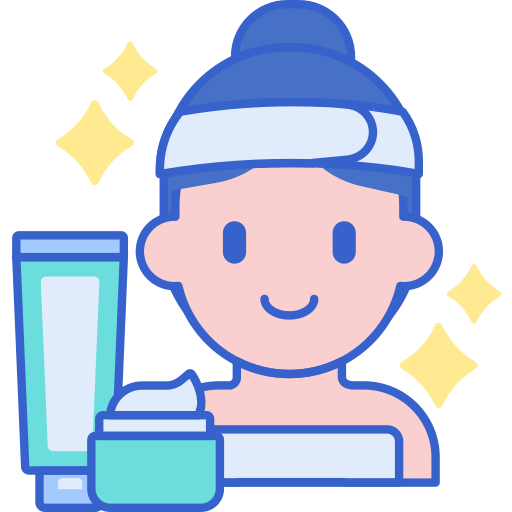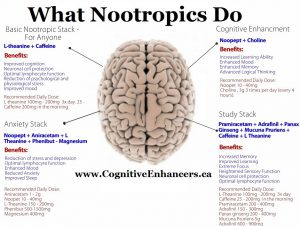
Lowering diastolic blood pressure quickly should be approached with caution and ideally under the guidance of a healthcare professional.
However, here are some immediate steps that might help:
- Deep Breathing: Practice slow, deep breathing to help relax your body and reduce stress, which can lower blood pressure.
- Hydration: Drink plenty of water to stay hydrated, as dehydration can sometimes lead to increased blood pressure.
- Reduce Sodium Intake: Avoid high-sodium foods and opt for low-sodium options to help decrease blood pressure.
- Limit Caffeine and Alcohol: Temporarily reduce or eliminate caffeine and alcohol consumption, as they can raise blood pressure.
- Relaxation Techniques: Engage in relaxation techniques such as meditation or yoga to help calm your mind and body.
- Physical Activity: A short walk or light exercise can help lower blood pressure, but avoid intense workouts if you’re not used to them.
If you experience significantly high blood pressure or symptoms like severe headache, chest pain, or shortness of breath, seek medical attention immediately.
Practice Deep Breathing Can Lower Blood Pressure
Practicing deep breathing can lower blood pressure by activating the body’s relaxation response, which counteracts stress and tension. Here’s how it works:
- Activates the Parasympathetic Nervous System: Deep breathing stimulates the parasympathetic nervous system, which promotes relaxation and reduces the heart rate, leading to lower blood pressure.
- Reduces Stress Hormones: Stress can trigger the release of hormones like adrenaline and cortisol, which increase heart rate and blood pressure. Deep breathing helps reduce these hormone levels.
- Improves Oxygenation: By taking slow, deep breaths, you increase oxygen intake, which can help improve circulation and reduce the workload on the heart.
- Enhances Mindfulness and Relaxation: Focusing on your breath can help calm the mind, reduce anxiety, and promote a sense of well-being, all of which contribute to lower blood pressure.
- Balances Autonomic Nervous System: Deep breathing helps balance the autonomic nervous system, which regulates involuntary body functions, including blood pressure.
Incorporating deep breathing exercises into your daily routine can be a simple yet effective way to support cardiovascular health.
Stay Hydrated To Lower Blood Pressure
Staying hydrated can help lower blood pressure through several mechanisms:
- Maintains Blood Volume: Proper hydration ensures that blood volume is maintained, which helps the heart pump blood more efficiently and can prevent the body from compensating with increased blood pressure.
- Reduces Blood Viscosity: Adequate water intake keeps the blood less viscous (thick), allowing it to flow more easily through blood vessels, reducing the pressure needed to circulate it.
- Supports Kidney Function: Hydration aids the kidneys in filtering waste and excess sodium from the body. Lower sodium levels can help reduce blood pressure.
- Balances Electrolytes: Proper hydration helps maintain a balance of electrolytes, such as sodium and potassium, which are crucial for regulating blood pressure.
- Prevents Dehydration-Induced Stress: Dehydration can cause stress in the body, leading to the release of stress hormones like vasopressin, which can constrict blood vessels and raise blood pressure.
By ensuring you drink enough water throughout the day, you can support these bodily functions and contribute to maintaining healthy blood pressure levels.
Reduce Sodium Intake To Decrease Blood Pressure
Reducing sodium intake can decrease blood pressure for several reasons:
- Reduces Fluid Retention: Sodium causes the body to retain water. Excess fluid increases the volume of blood, which can raise blood pressure. By reducing sodium, you decrease fluid retention, helping to lower blood pressure.
- Eases Blood Vessel Tension: High sodium levels can cause blood vessels to constrict, increasing resistance and pressure. Lowering sodium intake helps blood vessels relax and widen, reducing blood pressure.
- Balances Electrolytes: Sodium and potassium work together to maintain fluid balance and blood pressure. Reducing sodium while maintaining or increasing potassium intake (through fruits and vegetables) can help regulate blood pressure more effectively.
- Supports Heart Health: Lower sodium intake reduces the risk of developing hypertension, a major risk factor for heart disease and stroke. This supports overall cardiovascular health.
- Improves Kidney Function: Excessive sodium can strain the kidneys, which regulate blood pressure by controlling fluid balance. Reducing sodium intake helps kidneys function more efficiently, aiding in blood pressure control.
By cutting back on sodium, you can help manage blood pressure and reduce the risk of related health issues.
What Kind Of Foods Contain High Sodium
Foods high in sodium are often processed, packaged, or prepared with added salt. Here are some common examples:
- Processed Meats: Bacon, ham, sausages, hot dogs, and deli meats often contain high levels of sodium for preservation and flavor.
- Canned Soups and Vegetables: These often have added salt to enhance flavor and extend shelf life.
- Snack Foods: Chips, pretzels, popcorn, and crackers are typically high in sodium.
- Fast Food: Many fast food items, including burgers, fries, and fried chicken, are high in sodium due to seasoning and processing.
- Cheese and Dairy Products: Certain cheeses and dairy products, like processed cheese and cottage cheese, can be high in sodium.
- Sauces and Condiments: Soy sauce, ketchup, salad dressings, and other condiments often contain significant amounts of sodium.
- Frozen Meals: Many frozen dinners and pizzas are high in sodium to enhance flavor and preserve the food.
- Bread and Baked Goods: Some breads, rolls, and baked goods contain added salt.
To manage sodium intake, it’s helpful to read nutrition labels, choose fresh or minimally processed foods, and use herbs and spices for flavoring instead of salt.
Limit Caffeine And Alcohol Can Lower Blood Pressure
Limiting caffeine and alcohol can help lower blood pressure for several reasons:
- Caffeine’s Temporary Effect: Caffeine can cause a short-term spike in blood pressure by stimulating the cardiovascular system and increasing heart rate. Reducing caffeine intake can help prevent these temporary increases.
- Alcohol’s Impact on Blood Pressure: Excessive alcohol consumption can lead to long-term increases in blood pressure. It can also interfere with the effectiveness of blood pressure medications. Limiting alcohol helps maintain healthier blood pressure levels.
- Stress and Anxiety Reduction: Both caffeine and alcohol can contribute to increased stress and anxiety, which can raise blood pressure. Reducing intake can help promote relaxation and lower stress levels.
- Improved Sleep Quality: Caffeine can disrupt sleep, and poor sleep is linked to higher blood pressure. Alcohol, while initially sedating, can also disrupt sleep patterns. Better sleep supports overall cardiovascular health.
- Weight Management: Alcoholic beverages can be high in calories, contributing to weight gain, which is a risk factor for high blood pressure. Limiting alcohol can aid in maintaining a healthy weight.
By moderating caffeine and alcohol consumption, you can support healthier blood pressure levels and overall cardiovascular health.
Engage in relaxation techniques Helps Reducing Blood Pressure
Engaging in relaxation techniques can help reduce blood pressure through several beneficial effects:
- Activates the Relaxation Response: Techniques like meditation, yoga, and deep breathing activate the parasympathetic nervous system, which counteracts the stress response and helps lower heart rate and blood pressure.
- Reduces Stress Hormones: Relaxation techniques decrease the production of stress hormones like cortisol and adrenaline, which can constrict blood vessels and raise blood pressure.
- Improves Emotional Well-being: Regular practice of relaxation techniques can enhance mood and reduce anxiety, contributing to lower blood pressure by promoting a sense of calm and well-being.
- Enhances Mindfulness: Techniques such as mindfulness meditation encourage present-moment awareness, helping individuals manage stress more effectively and prevent stress-related blood pressure spikes.
- Promotes Better Sleep: Relaxation practices can improve sleep quality, and good sleep is essential for maintaining healthy blood pressure levels.
- Encourages Healthy Lifestyle Choices: Engaging in relaxation techniques often leads to greater awareness of overall health, encouraging other positive lifestyle changes that support blood pressure management.
Incorporating relaxation techniques into your daily routine can be a powerful way to support cardiovascular health and manage blood pressure.
Listen to the music which we have created to relax your mind and body:
Physical Activity Can Help Lower Blood Pressure
Physical activity can help lower blood pressure through several key mechanisms:
- Strengthens the Heart: Regular exercise strengthens the heart muscle, enabling it to pump blood more efficiently with less effort. This reduces the force on your arteries, lowering blood pressure.
- Improves Blood Vessel Function: Physical activity enhances the flexibility and function of blood vessels, allowing them to dilate more easily and reduce resistance, which helps lower blood pressure.
- Aids Weight Management: Exercise helps burn calories and maintain a healthy weight. Excess weight is a risk factor for high blood pressure, so managing weight through physical activity can help control it.
- Reduces Stress: Physical activity releases endorphins, which are natural mood lifters. This can reduce stress and anxiety, both of which can contribute to high blood pressure.
- Balances Hormones: Regular exercise helps regulate hormones that control blood pressure, such as insulin and adrenaline, contributing to overall cardiovascular health.
- Improves Sleep: Engaging in regular physical activity can enhance sleep quality, which is important for maintaining healthy blood pressure levels.
Incorporating regular physical activity into your routine, such as walking, jogging, cycling, or swimming, can be an effective way to manage and lower blood pressure.
Final Thoughts
Incorporating these lifestyle changes can create a powerful impact on your heart health and significantly reduce your blood pressure.
By cutting back on sodium and consciously limiting caffeine and alcohol, you’re taking crucial steps to alleviate strain on your cardiovascular system.
Pairing these dietary adjustments with engaging relaxation techniques and regular physical activity not only fosters a calmer mind but also bolsters your heart’s efficiency and resilience.
These simple yet effective strategies can quickly lower your blood pressure, ultimately decreasing your risk of heart attacks and enhancing your overall well-being.
Embrace these changes as a commitment to a healthier, more vibrant life, and feel empowered knowing that every small step brings you closer to optimal heart health.
Frequently Asked Questions
Reducing sodium intake is crucial because high sodium levels cause the body to retain water, increasing blood volume and putting extra pressure on blood vessels.
By lowering sodium consumption, you can significantly reduce this strain, leading to lower blood pressure.
Opt for fresh, whole foods and read nutrition labels to avoid hidden sodium in processed items.
Cardiovascular exercises such as walking, jogging, cycling, and swimming are highly effective for lowering blood pressure.
These activities boost heart health by improving circulation, enhancing blood vessel flexibility, and helping with weight management.
Aim for at least 150 minutes of moderate aerobic exercise per week, and consider incorporating strength training to further support cardiovascular fitness.
Relaxation techniques, like meditation, deep breathing, and yoga, activate the body’s relaxation response, which lowers stress hormone levels and decreases heart rate.
This leads to a reduction in blood pressure.
Regular practice of these techniques can enhance emotional well-being and help maintain long-term cardiovascular health by preventing stress-induced blood pressure spikes.
It’s not necessary to completely eliminate caffeine and alcohol, but moderation is key.
Caffeine can cause temporary blood pressure spikes, so limit intake to moderate levels and monitor your body’s response.
For alcohol, stick to recommended guidelines—up to one drink per day for women and two for men—to prevent long-term blood pressure increases and ensure alcohol does not interfere with any medications.
The impact of lifestyle changes on blood pressure can vary, but many people notice improvements within a few weeks of adopting healthier habits.
By consistently reducing sodium, moderating caffeine and alcohol, engaging in regular exercise, and practicing relaxation techniques, you can lower your blood pressure and reduce your risk of heart attacks.
Commitment to these changes enhances overall well-being and supports long-term heart health.





